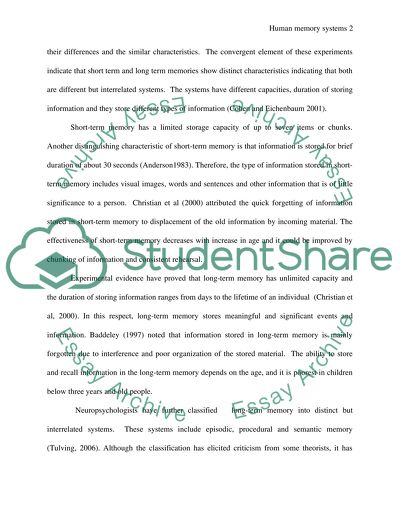Cite this document
(“Human memory appears to consist of a number of systems. Outline ways Essay”, n.d.)
Retrieved from https://studentshare.org/marketing/1427544-human-memory-appears-to-consist-of-a-number-of
Retrieved from https://studentshare.org/marketing/1427544-human-memory-appears-to-consist-of-a-number-of
(Human Memory Appears to Consist of a Number of Systems. Outline Ways Essay)
https://studentshare.org/marketing/1427544-human-memory-appears-to-consist-of-a-number-of.
https://studentshare.org/marketing/1427544-human-memory-appears-to-consist-of-a-number-of.
“Human Memory Appears to Consist of a Number of Systems. Outline Ways Essay”, n.d. https://studentshare.org/marketing/1427544-human-memory-appears-to-consist-of-a-number-of.


